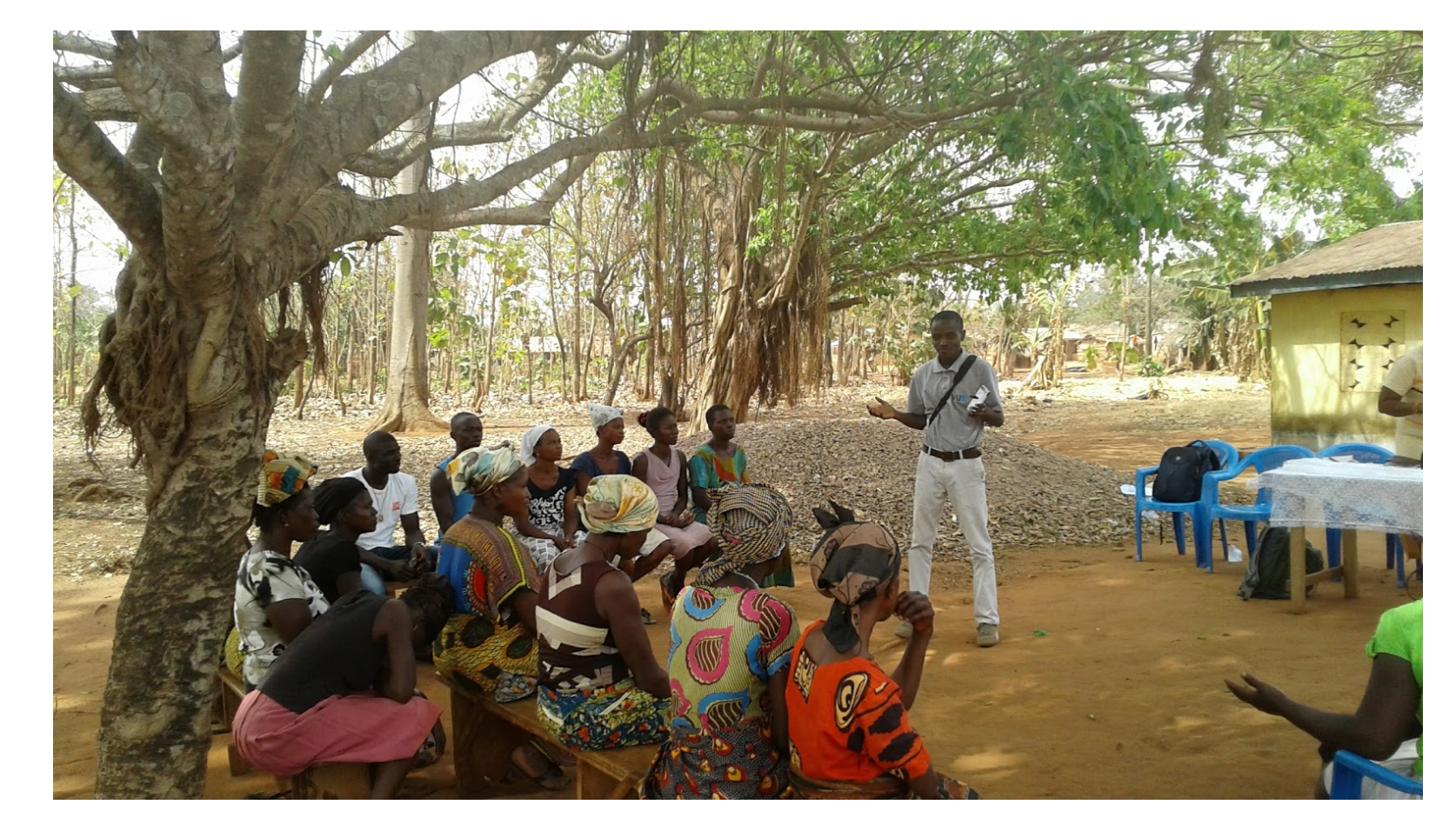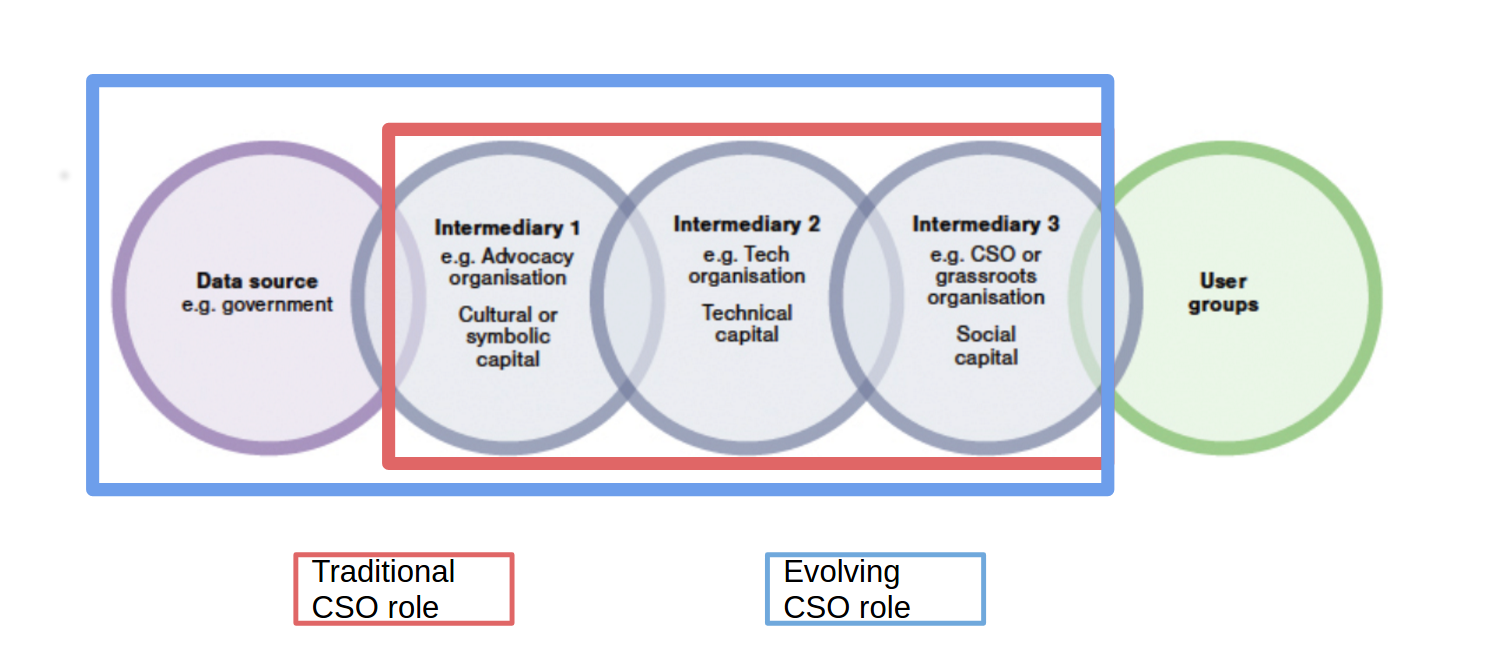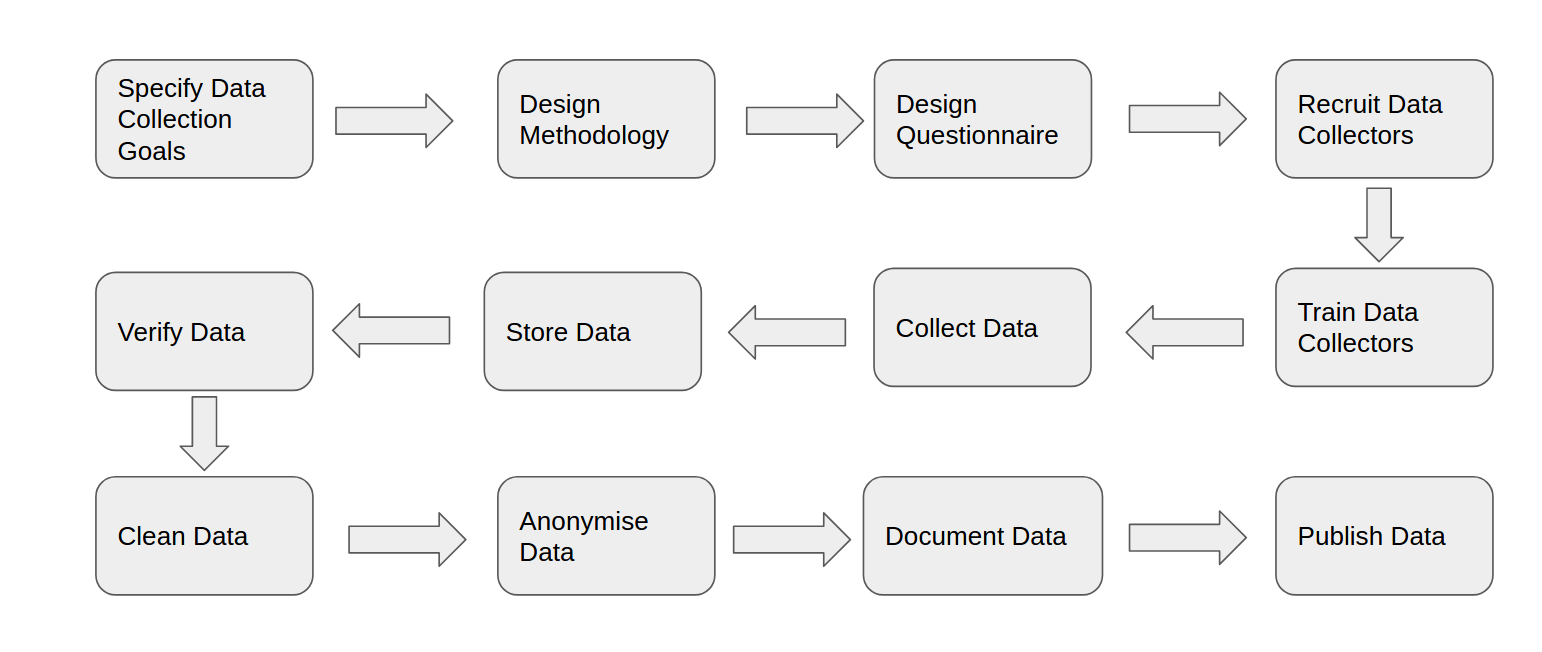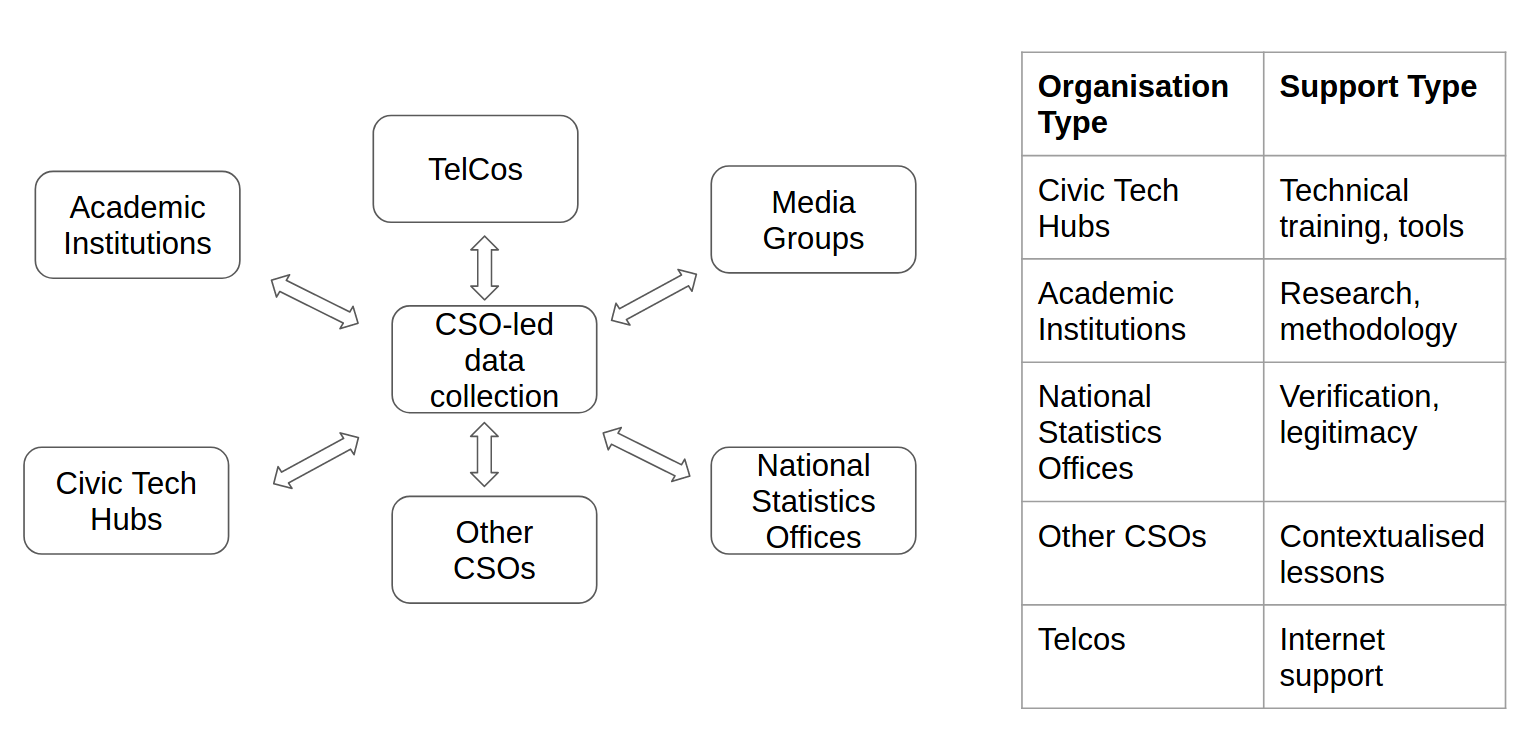Open Knowledge International is a member of Open Data for Development (OD4D), a global network of leaders in the open data community, working together to develop open data solutions around the world. In this blog, David Opoku of Open Knowledge International talks about how the OD4D programme’s Africa Open Data Collaboration Fund and Embedded Fellowships are helping build the capacity of civil society organisations (CSOs) in Africa to explore the challenges and opportunities of becoming alternative public data producers.

Context
Due to the challenge of governments providing open data in Africa, civil society organisations (CSOs) have begun to emerge as alternative data producers. The value these CSOs bring includes familiarity of the local context or specific domain where data may be of benefit. In some cases, this new role for CSOs serves to provide additional checks and verification for data that is already available, and in others to provide entire sets of data where none exists. CSOs now face the challenge of building their own skills to effectively produce public data that will benefit its users. For most CSOs in low-income areas, building this capacity can be long, logistically-intensive, and expensive.

Through the Open Data for Development (OD4D) program, Open Knowledge International (OKI) sought to learn more about what it takes to enable CSOs to become capable data collectors. Using the Africa Open Data Collaboration (AODC) Fund and the OD4D embedded fellowship programmes, we have been exploring the challenges and opportunities for CSO capacity development to collect relevant data for their work.
Our Solution
The AODC Fund provided funding ($15000 USD) and technical support to the Women Environmental Programme (WEP) team in Abuja, Nigeria, that was working on a data collection project aimed at transparency and accountability in infrastructure and services for local communities. WEP was supported through the AODC Fund in learning how to design the entire data collection process, including recruiting and training the data collectors, selecting the best data collection tool, analysing and publishing the findings, and documenting the entire process.

In addition, the embedded fellowship programme allowed us to place a data expert in the Advocates for Community Alternatives (ACA) team for 3 months to build their data collection skills. ACA, which works on land issues in Ghana, has been collecting data on various community members and their land. Their challenge was building an efficient system for data collection, analysis and use. The data expert has been working with them to design and test this system and train ACA staff members in using it.
Emerging Outcomes
Through this project, there has been an increased desire within both WEP and ACA to educate their staff members about open data and its value in advocacy work. Both organisations have learned the value of data and now understand the need to develop an organisational data strategy. This is coupled with an acknowledgement of the need to strengthen organisational infrastructure capacity (such as better emailing systems, data storage, etc.) to support this work.
The hope is that both organisations will have greater knowledge going forward on the importance of data, and have gained new skills in how to apply it in practice. WEP, for instance, has since collected and published their dataset from their project and are now making use of the Kobo Toolbox along with other newly acquired skills in their new projects. ACA, on the other hand, is training more of its staff members with the Kobo Toolbox manual that was developed, and are exploring other channels to build internal data capacity.
Lessons
These two experiences have shed some more light on the growing needs of CSOs to build their data collection capacity. However, the extent of the process as depicted in Figure 1 shows that more resources need to be developed to enhance the learning and training of CSOs. A great example of a beneficial resource is the School of Data’s Easy Guide to Mobile Data Collection. This resource has been crucial in providing a holistic view of data collection processes to interested CSOs.
Another example is the development of tools such as the Kobo Toolbox, which has simplified a lot of the technical challenges that would have been present for non-technical and low-income data collectors.

We are also learning that it is crucial to foster collaborations with other data stakeholders in a CSO-led data collection exercise. Such stakeholders could include working with academic institutions in methodology research and design, national statistics offices for data verification and authorisation, civic tech hubs for technical support and equipment, telecommunication companies for internet support, and other CSOs for contextualised experiences in data collection.
Learn more about this project:
- Read WEP’s blog post on lessons from their project, “Assessing the state of infrastructural development in FCT: The mixed lessons”
- Read the reflections from Oludotun Babayemi, the embedded fellow who worked with WEP, “‘Strinkwishism’: how to build organisational capacities around Open Data through embedded fellowships”
- Read the blog post by Nana Baah Gyan, the embedded fellow who worked with ACA, “Collaborating For A Greater Good”.
David is Africa Lead for the Open Data for Development (OD4D) project at Open Knowledge Foundation.








